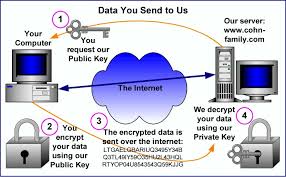 What kind of encryption does HMA Pro VPN use?
What kind of encryption does HMA Pro VPN use?
HideMyAss currently offers the maximum of security you can get nowadays - your internet traffic will be safe when using HMA! Pro VPN.
Should someone intercept your traffic, it would be useless for him. He
doesn't know the key and therefore can't decrypt the data.Before connecting to the VPN, you can choose which protocol you would like to use, OpenVPN or PPTP.
OpenVPN connections: For encryption the cipher in use is CBC mode of Blowfish with encryption strength of 128bit, hash algorithm is 160bit SHA1, and the control channel is same TLSv1/SSLv3 DHE-RSA-AES256-SHA, 1024 bit RSA.
PPTP connections: For encryption PPTP uses MPPE (Microsoft Point-to-Point-Encryption) 128bit cipher with compression and MS-CHAPv2 authentication.
L2TP: Our L2TP Protocol is being tunnelled with IPSec, which supports multiple encryption protocols which are negotiated upon connection. The ones our servers support are:
TWOFISH_CBC, SERPENT_CBC, AES_CBC, BLOWFISH_CBC
Generally you can say that OpenVPN is safer than PPTP. But for normal purposes it shouldn't make a difference, so take the one which is the fastest for you.
Example of encryption
One example: When using Blowfish, the encryption works with a key that is needed to encrypt and decrypt data.When we're using the string "This is a blowfish key!" for our key, and we want to encrypt the string "www.hidemyass.com", the result is:
EFBFE3763805B5A814C1221D87891D25E7263A06CF5A809A (hexadecimal)
5.878642217350418e+57 (decimal)
You can't decrypt this without knowing the key "This is a blowfish key!"
